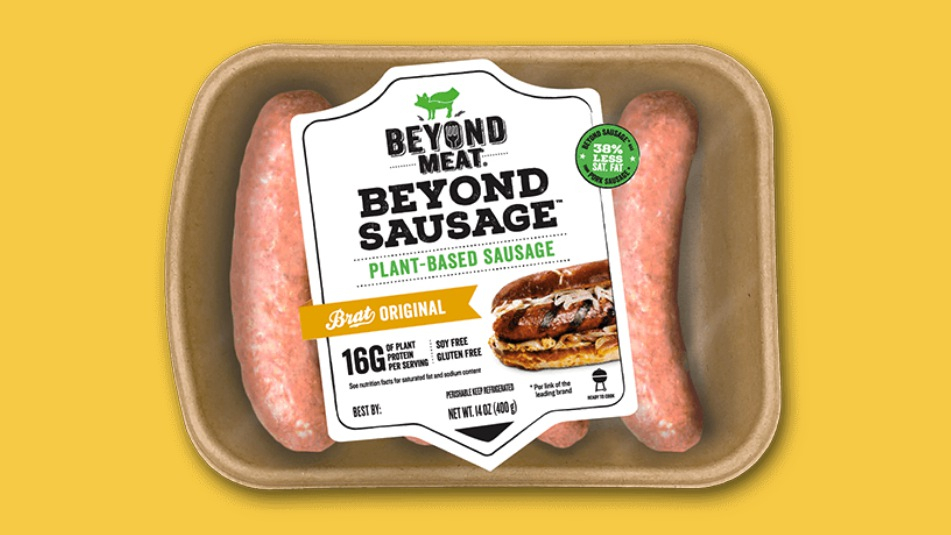
Money Stories
17:34, 13-May-2019
Will synthetic meat stir up investors in China?
Yu Wen
03:14

California synthetic beef producer Beyond Meat Inc. debuted on the Nasdaq earlier this month and soared 163 percent in its first day of trading. Its success in New York has also spilled over into China's A-share market.
Beyond Meat sells both raw plant-based meat and cooked foods, and it is the first ever man-made meat producer to seek public investment worldwide. The company's upward ride on the equity markets now values it at around four billion U.S. dollars, and gives it a Price-to-Sales (PS) ratio of 44 times, much higher than that of other food companies.
Theodore Shou, chief investment officer at Skybound Capital, said the high ratio might come from uniqueness of its products, as well as the advanced technology it is using – giving plant protein the flavor and texture of meat requires a variety of technologies.
"Whenever it came to a big tech name that came into market, the PS is always high. For example, Amazon, when it was trading, the PS was roughly 20 to 25 times which is also very high. But what's interesting is ultimately the PS is going to come down no matter [if] it is a fast-growing company or whether it is living on bubble or hype," Shou said.

A package of Beyond Meat plant-based sausage. /Photo via Beyond Meat official website
A package of Beyond Meat plant-based sausage. /Photo via Beyond Meat official website
Beyond Meat's market sensation is sweeping China's A-shares, too. Concept stocks have been bucking the trend of China's markets for several trading days now. Just after Beyond Meat went public, bean-related producers Shuangta Food, VV Group and soybean processing company Hagaoke all rose by the daily trading limit three days in a row.
Investors are betting on the hope that the synthetic meat industry could become a power in Chinese markets. However, Yang Zhongning, an investment consultant at Industrial Securities, cautioned that Chinese consumers may find Beyond Meat's beef substitutes less than immediately appealing due to the pork-heavy diet in the country.
"When we talk about meat consumption in China, we are talking about pork, while in the U.S., that would be beef. Therefore, meat substitute in the two countries would be very different in terms of processing procedures. That's why I think it's still a bit early for Beyond Meat or any other domestic man-made meat company to take place in China," Yang explained.

SITEMAP
Copyright © 2018 CGTN. Beijing ICP prepared NO.16065310-3
Copyright © 2018 CGTN. Beijing ICP prepared NO.16065310-3